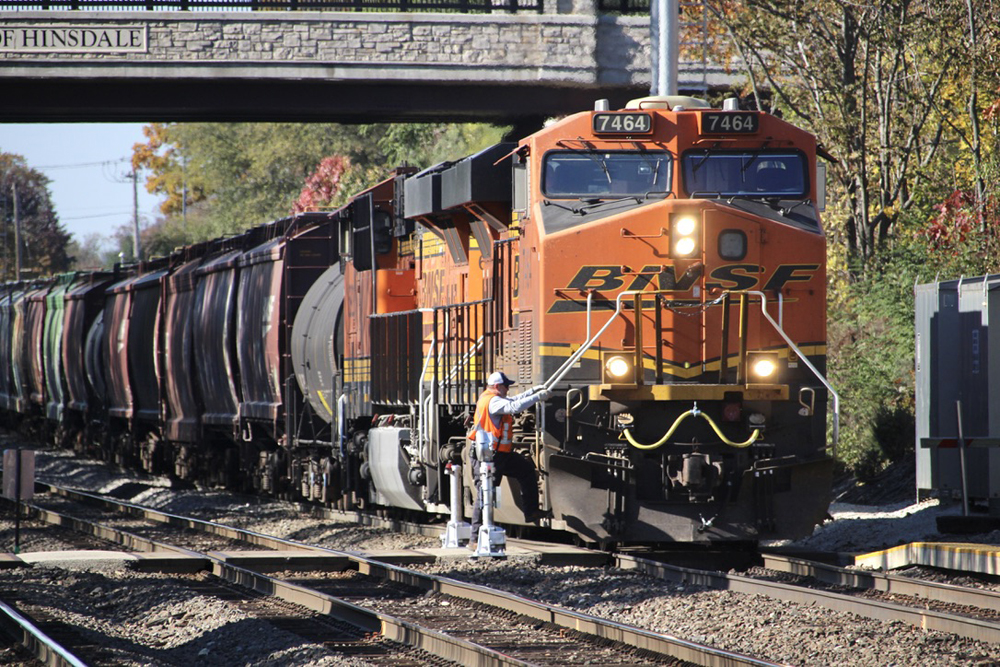
CHICAGO – Surface Transportation Board Chairman Martin J. Oberman told a shipper conference that Class I railroad behavior over the past few years – mass layoffs, crew shortages, and poor service – may require a new approach to regulation.
“It may be time to say 2023 is not 1980 and we need to rethink some of these concepts because the current legal structure allows the railroads to do what they’ve been doing for the last 15 years,” Oberman said, referring to the Staggers Act that partially deregulated the industry in 1980. “It’s somewhat beyond my pay grade but I raise the question.”
It would be up to Congress to draw up a new railroad regulatory system, but Oberman says the STB will issue a decision this year on reciprocal switching regulations.
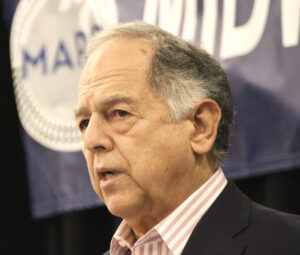
Railroads are failing Americans and the U.S. economy by not keeping up with economic growth or the rise in truck tonnage, Oberman says. Over the past decade, volume excluding coal on the big four U.S. Class I railroads was up just 2%, while industrial production was up 3%, the overall economy grew 57%, and truck tonnage surged 26%. “These numbers should be an embarrassment to the entire industry,” Oberman says.
Oberman was critical of the loss of 34,000 railroad jobs over the past few years and called widespread train crew shortages a self-inflicted problem. He also lamented the pace of hiring on the big four U.S. systems, which began experiencing crew shortages late in 2021 that prompted STB service hearings in April 2022. In the year since the hearings, the four railroads have added just 1,439 active train and engine employees, Oberman says.
Most of those new hires have been on CSX Transportation and Norfolk Southern, he said, noting that CSX has been released from the STB’s expanded performance data because of its service improvements. Union Pacific has added 142 people to its active train and engine crew ranks, a 1% increase, Oberman says, while BNSF Railway has added 287, a 2% increase.
“This leaves no mystery as to why service on UP and BNSF continues to cause major problems for customers,” Oberman says.
Oberman was critical of UP for planning to curtail its hiring efforts as the economy slows and freight demand weakens. “I think it is stunning after all this that UP would say, you know what, we are going to slow down our hiring,” Oberman says. “They are way behind. And the notion that their service is OK is silly.”
Earlier in the day, UP CEO Lance Fritz told the conference that the railroad was operating well and that its local service performance was at or near all-time highs.
Oberman cited two examples of service problems in the West.
Soda ash mining companies in Wyoming have told the STB that for months UP has provided unreliable and inadequate service. The STB toured four mines this month that ship a combined 110,000 carloads per year on UP. Due to increased demand for soda ash, an essential component for manufacturing of glass, detergents, and lithium batteries, the mines are planning to increase production by 60% to 65% over the next five years.
“They have not been able to obtain from UP a concrete plan to increase rail capacity to handle the huge growth,” Oberman says. “Only after I personally intervened in the last few days … has UP even been willing to provide a written description of its plans for the line which moves the Green River soda ash to market. But that response sent to me was labeled confidential. It was not sent to the miners who are the ones who need the information. And unfortunately, while referring to UP’s capacity strategy, UP’s letter was silent as to whether that strategy will enable them to actually move all additional 65,000 carloads.”
Oberman says the lack of capacity assurances from UP has hurt the mining companies’ ability to plan for expansions. “What kind of business needs a government official to lean on it in order to relate to its own customers in order to increase its own sales and make more money? Apparently, only a railroad,” Oberman says.
Even more concerning, Oberman says, is BNSF’s inability to handle demand for finished vehicle shipments. “As a direct result, there are at least 70,000 new vehicles stranded across the industry unable to move to dealers,” he says. “Because they cannot move these already finished vehicles, auto manufacturers have already reduced production schedules by at least 50,000 vehicles.”
The reduced production has affected employees at automakers and their suppliers, causing $350 million in direct impacts and likely costing the U.S. economy more than $3 billion in indirect impacts, Oberman claims.
“These are just two examples of how the shortsighted strategies of the Class I’s in recent years are hurting not only their own customers, but every U.S. citizen, by depressing the nation’s economy,” Oberman says.
Oberman says there are positive signs in the rail industry, particularly from the new Class I chief executives who are taking what he called “meaningful steps to turn their railroads toward better service and growth.”
CSX CEO Joe Hinrichs has established a better relationship with rail labor and was a leader in reaching paid sick time agreements with unions. The improved union-management relationship, Oberman says, has contributed to CSX’s industry-leading service recovery.
Oberman praised Norfolk Southern CEO Alan Shaw and Canadian National CEO Tracy Robinson for pledging to not furlough crews during downturns so that they can handle a rebound in traffic and provide more consistent service over the long term. “If the railroad industry has learned nothing else from the past three years, it is that railroad employment levels must be set for the long term,” Oberman says.
He also applauded the tentative agreement UP reached this week with the Brotherhood of Locomotive Engineers and Trainmen that will provide a set schedule for engineers.
And Oberman credited Canadian Pacific and Kansas City Southern for their ambitious goals related to the CPKC merger.






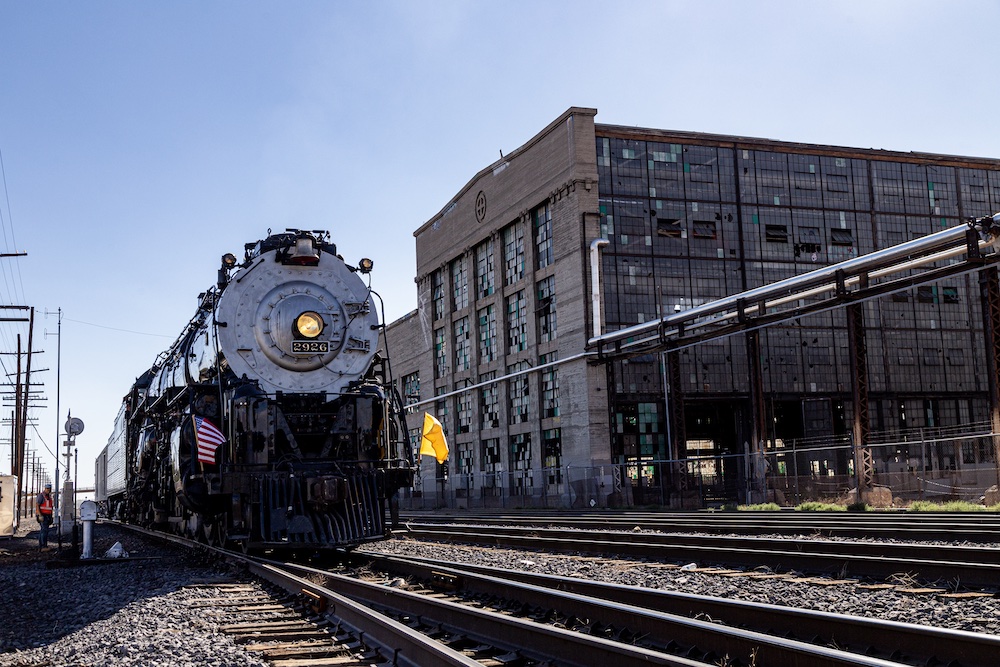
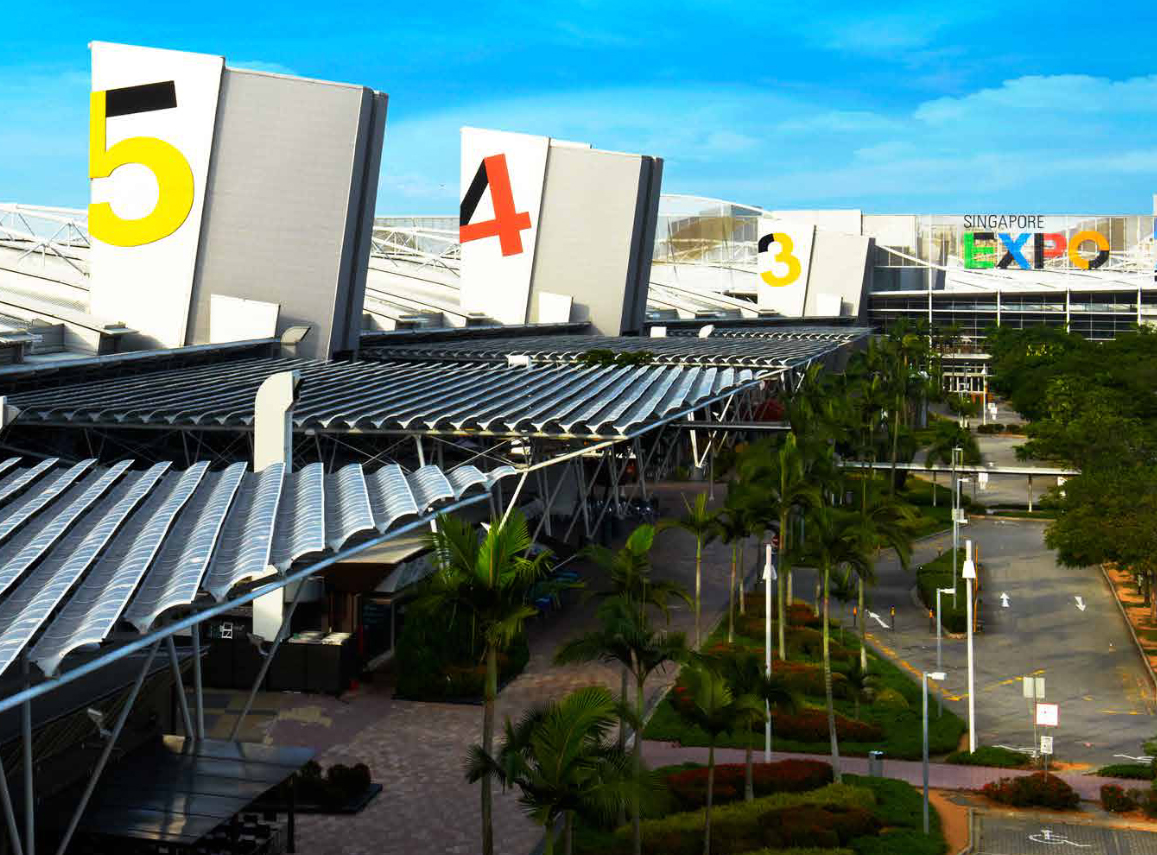
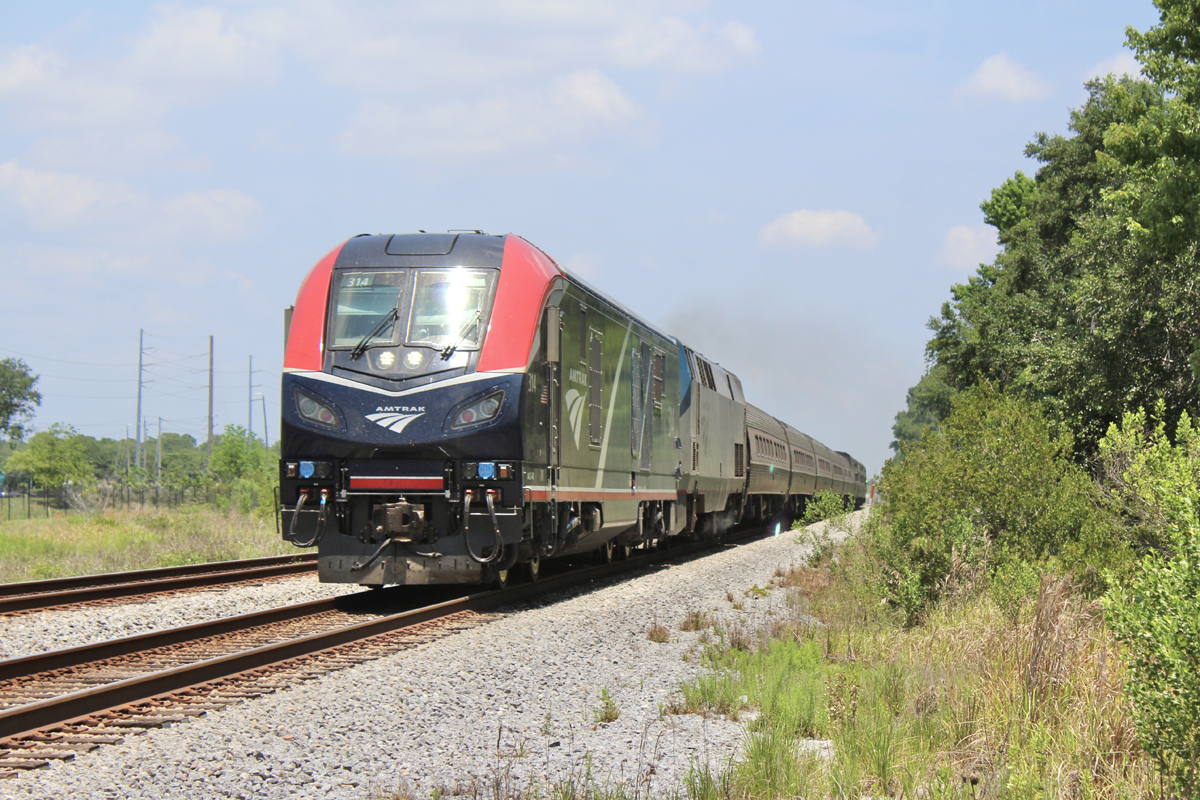
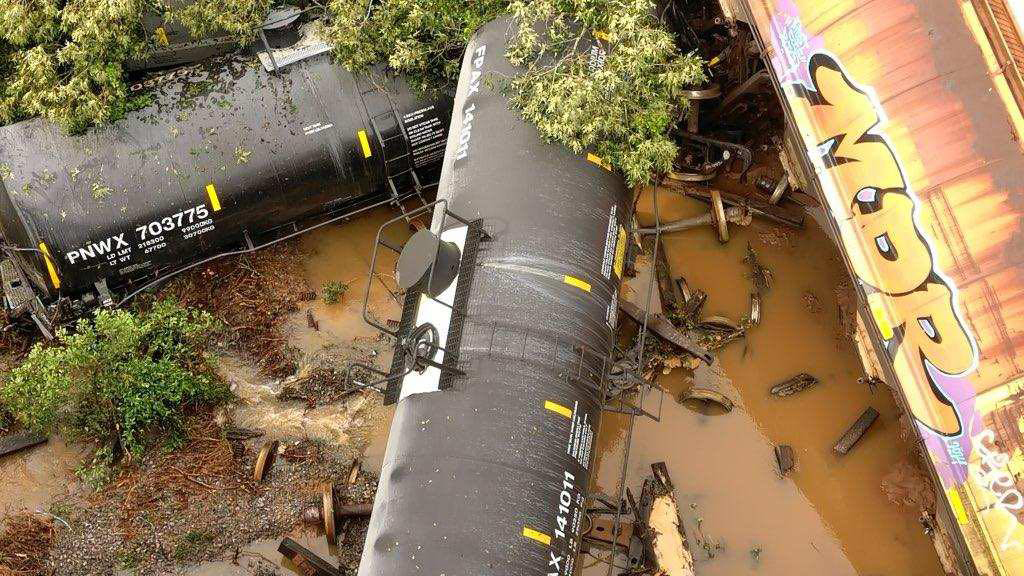




I was at those meetings. Katie Farmer said it herself: “The BNSF Chief Information office and the JBHU Chief Information office are meeting to find better ways to share information.” Thus, further blurring the end of the BNSF and the beginning of Hunt. A simple view of Virtual Railfan at Fort Madison Ia illustrates my point. Exclusive agreements like BNSF – JBHU Quantum squeeze out rail capacity for everything else. Any smart shipper on BNSF other than J B Hunt will consider their options. Otherwise, as Mr Oberman says, the 1980 reference is directed at the Federal Intermodal Exemption laced now with unintended outcomes.
I was under the assumption that there are empty hopper cars stored at many places in this country due to coal shipments declining. Surely BNSF could lease some hoppers. And with the decline in cars handled surely there are stored locomotives that can be fired up. Same for UP on soda ash.
With many warnings from Oberman you would think intelligent people running UP and BNSF would get their butts busy and clean up their act. But, as others have predicted, it will take a government back lash and re- regulation to get their attention. Why on earth would any railroad executive want that?
Looks like Gould and Fisk are running UP when they really need a Harriman.
The rail industry moved 21% fewer carloads in 2022 than in 2006. This year is looking to increase that downward trend. As Oberman notes, the overall economy grew 57%, and truck tonnage surged 26%. Not only should these numbers be an “embarrassment ” to the industry, they should be unacceptable to every American. Regulation has been tried for 150 years. It does not work. It is time for public ownership and control of the rail industry! https://www.railroadworkersunited.org/public-ownership-of-the-railroads
Class 1’s *want* regulation to protect them from the hedge fund warriors, not the shippers. Regulation can get them the margins they say they need to provide the level of service the STB expects.
If it is required by the government, then the Class 1 can pass those costs along, no different than those silly “Mandatory Govt. Regulatory Fee” you see on airplane tickets and cell phone bills.
You can’t hire employees if the don’t qualify or they don’t apply. Nor can you hire when the younger generation wants more than just a higher income…which somehow they seem to think doesn’t solve all their problems, when for the most part, more money can solve most of their problems. As for quality of life, if living stress free from money issues isn’t enough of a QoL benefit, then the future is hopeless.
Unemployment rates are at a 50-year low. Where do you expect to find these new employees? It is not that “People don’t want to work.” Again–a 50-year low. Also, where do you get your conclusions about the “younger generation?” Did you do research? Do you have data? And jsut who makes up this generation?
Any statement by STB about expanded regulation depends on Congressional legislation, which seems an elusive goal.
Reciprocal switching will not cause RRs to hire more people.
Oberman’s statement is the next-to-last step in the process. The last step, coming very soon, is regulation.
Regulation has been inevitable. All that was lacking was Oberman saying so.
The railroads have brought this on themselves.
True that, Mr. Landry. It’s a self-inflicted wound that will never heal on its own.
That is the way railroads have always operated: Don’t budge until forced to and then drag your heels as long as possible.
The current tiff between Navajo Energy Technologies and BNSF in the Powder River Basin is a prime example. NET wants to ship more coal. BNSF says they don’t have the resources. But they do have the resources, they are just tied up keeping their promises to another larger coal mine. Same deal that they gave J. B. Hunt which caused Schneider to move all of their east west traffic to Union Pacific. In this case NET is stuck with BNSF excuses unless the STB grants emergency trackage rights to UP to process the additional coal. UP has the hoppers and the locomotives to do the job if BNSF won’t. Not only is NET affected but so is the Cheyenne Indian Nation who has their own coal reserves which they would like to develop but can’t as long as BNSF claims they don’t have the resources.
I’ve never seen in all my years the haphazard way that rail corporations turn down the opportunity to improve their capital all because of the concept of bare bone gains in operating ratio. Enough already. Are you willing to sacrifice your freedom to operate on you own or would you rather be told where to step and how far? Mr. Landey is right is right. And if the railroads keep acting as they are, they might get exactly what they want and it might not be what they thought it would be.